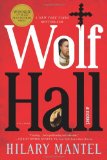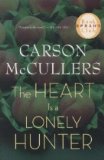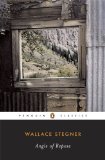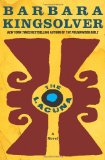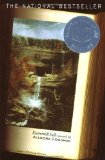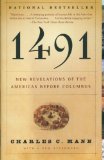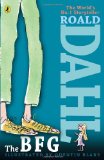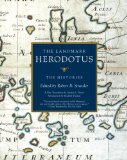Category: Books & Learning
Book Review: “Wolf Hall” by Hilary Mantel
January 14, 2010 { Book Reviews }Wolf Hall concerns in a much-studied time. Writers have plundered the intriguing reign of King Henry VIII and his storied serial wives from hundreds of angles, both academic and artistic. But Hilary Mantel does something new: In this story we have a novel that is, in a certain way, the story of the birth of bureaucracy, centered on a person historians usually skirt around in a rush to more legendary (or, seemingly, interesting) figures. In this novel about Thomas Cromwell, Mantel does something amazing. It’s as if, instead of dealing with characters, we are looking at real human beings.
My Picks: Best Books I read in 2009
January 7, 2010 { Books & Learning }My favorite books in new literature, old literature, non-fiction, and “something else.” Also, I can’t escape mentioning the stinkers of the year. Here are my top (and not top) books of 2009.
Reader Question: Best book you ever found by accident
January 7, 2010 | 6 comments { Books & Learning }Most of my book purchases are relatively thought out. I see something lauded in the New York Times Book Review. I know of it as a classic. It’s this month’s book club read. Or it came highly recommended. Rarely do I grab books blindly, in a vacuum. Here are two gems I found this way–and I want to hear about your random finds.
Book Review: “The Lacuna” by Barbara Kingsolver
January 5, 2010 | 1 comment { Book Reviews }According to Frida Kahlo in Barbara Kingsolver’s new novel, The Lacuna, the most important thing about someone is the thing you don’t know. For us as readers: there’s a missing notebook in our protagonist’s otherwise complete personal history. We think, by the end, that we have probably figured out what was in that gap–that lacuna–but have we?
Book Review: “Kaaterskill Falls” by Allegra Goodman
January 4, 2010 { Book Reviews }Goodman’s novel is a handsomely-constructed story, meeting all of the complex demands of a novel’s craft. Characters are nuanced, settings are evocative, and the strange love-terror-happiness entrapment her protagonists feel for their tight-knit and very conservative Jewish community is well expressed. In the end, the very accuracy of the characters Goodman has built–restrained, traditional, averse to conflict–keeps the book from kindling a real spark.
Book Review: “The Heart is a Lonely Hunter” by Carson McCullers
January 4, 2010 { Book Reviews }Yearning, melancholy, loving and sad: the more McCullers I read, the more I realize her genius for her gentle understanding of the lonely, the freakish and the isolated.
McCullers understands the panicky void that gapes around those who are alone, who cannot express the complications of their minds. Each character here, floating alone through life in a miserable southern mill town, each one shares two things in common.
Book Review: “1491″ by Charles Mann
January 4, 2010 { Book Reviews }Just how many people were in the New World on the cusp of the Columbus encounter? And how advanced were the preeminent civilizations at the time? Mann takes a big, bold perspective on the Way Things Might Have Been in this interesting sociological tapestry. Comfortable, conversational writing from someone comfortable with both nonfiction and narrative.
Book Review: “BFG” by Roald Dahl
January 4, 2010 { Book Reviews }‘Do you like vegetables?’ Sophie asked, hoping to steer the conversation towards a slightly less dangerous kind of food.
‘You is trying to change the subject,’ the Giant said sternly. ‘We is having an interesting babblement about the taste of the human bean. The human bean is not a vegetable.’
‘Oh, but the bean is a vegetable,’ Sophie said.
‘Not the human bean,’ the Giant said. ‘The human bean has two legs and a vegetable has no legs at all.’
The Big Lebowski: A la Shakespeare
January 4, 2010 { Books & Learning, Geek }
The Internets + Relatively firm knowledge of Shakespeare + Time + Geek Proclivities = TWO GENTLEMEN OF LEBOWKSI
THE KNAVE: Good sir, speak plain. I know not these villains, surely would I ne’er traffic with this man of Orient birth who so abused my rug. I have not the facility to present him with the rate of usance and demand money in kind for that which he has spent upon’t; so I entreat you, speak plain.
Image by Sleeper Cell on Flickr
Book Review: “Histories” by Herodotus (Landmark)
January 3, 2010 { Book Reviews }I consider Herodotus a duty; to be broadly educated, he seems an essential read. I chose this edition because of its massive scale of coverage: It took me about eight months to read the entire text.
Herodotus, author of the first major surviving written accounts that look something like historical narrative. Oft credited as the Father of History, he is also derided as the Father of Lying.
From the Archive
From the archive, a few random posts that you might not have seen before.
- Sep 8, 2008 { Letterpress }
Letterpress: Project, Rehabilitating a Slug Cutter - Oct 12, 2007 { Life, PDX }
Murdered Person Left in Dumpster Next to Kes & Aileen's House - Jul 21, 2006 { Life }
The Perfect Thing Will Never Happen - Feb 6, 2008 { Life, Music }
Ongoing Poking Fun at Ferry Corsten

